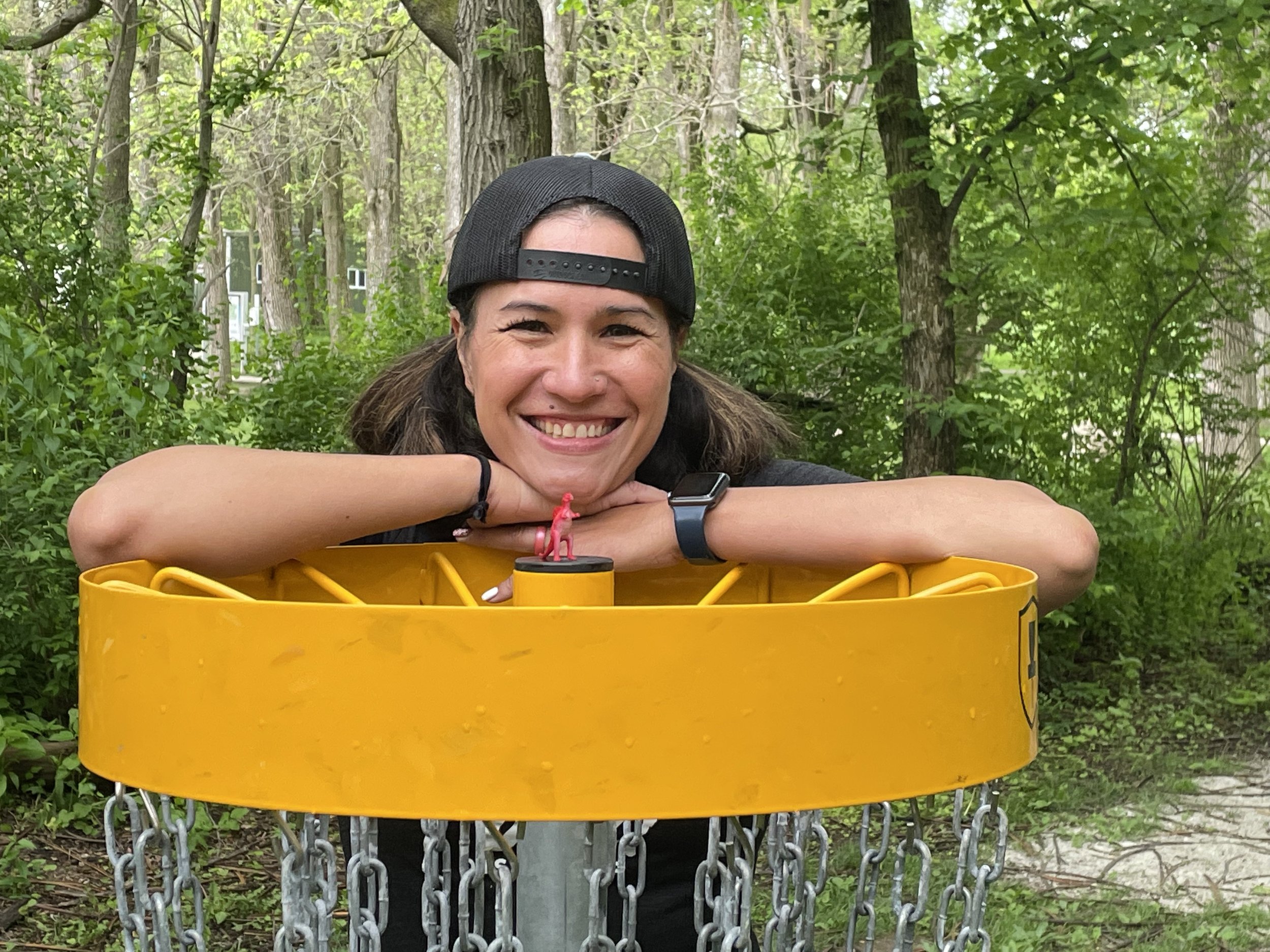Disc Golf and Mental Health
May is Mental Health Awareness Month, and what better time to discuss the many benefits that Disc Golf has for so many players across the world. According to NAMI, the National Alliance on Mental Illness, “Mental Health is an incredibly important part of overall health. With a growing number of Americans experiencing mental health symptoms, we need to join together to advocate for improving our nation’s mental health care system.” Disc Golf is a natural fit for joining the fight for mental health, and I am going to break down some of these benefits.
Disc Golf takes a second to learn, but a lifetime to master. Like poker, or pool, or bowling, these types of activities continue to challenge us no matter where we are on the skill curve. A beginner disc golfer is just as challenged as a veteran pro: Hitting our lines, making sound decisions, remaining calm, sticking to a game plan, adapting, and adjusting to adversity as we battle on the course is the same for all of us. These types of challenges foster focus, determination, problem solving, emotional control and are also the same kinds of tools for battling mental illness. The lessons we learn while attacking a course are the same lessons we can use in tackling ‘the course of life’.
Disc Golf is a great metaphor for life: the lessons we learn on the course translate to lessons we can apply in life. This game challenges us on every level. For example, the amount of stress and anxiety one feels when looking down a 30-foot birdie putt can be immense. But with practice, determination, calm and courage, we can sink that putt. The joy and relief and vindication we experience after an achievement like this is why we play the game. This kind of thinking also translates to our everyday lives. That same practice, determination, calm and courage can help us overcome our anxieties and stresses that challenge us in our daily struggles. Imagine feeling that same kind of joy and relief in your daily life, how much more capable you are of handling adversity and balancing your mental health. Overcoming adversity in disc golf, and life, improves our outlook, and gives us the strength to improve. Sports have a lifelong history of teaching us the hard lessons and the great achievements that we can use to build a well-balanced, healthy and happy life.
But don’t take my word for it, I reached out to some friends on Twitter for some real-world testimonials on how disc golf has helped their own mental health. @Micah_Hurt_ says, “Disc Golf helps me stay more in the moment, which has helped my mindfulness in daily life. It helps my general anxiety, and the physical health benefits have helped my mental health.” @metaphysicaljo3 says, “It has been huge for helping manage my anxiety, both general and social, and I try, although be it not always successfully, to view the onset of anxiety as just my brain trying to give me information and then acknowledge it without overacting to it.” @chiefdnteeth says, “Disc Golf has been an undeniable benefit to my mental health. I’ve always been one to meditate, but a solo round is a true meditative experience and a chance to slow down and focus only on what is in front of you in the present moment.” @FlexShotDG says, “[Disc Golf helps me with] dealing with general conflicts in life. Understanding I can do everything perfectly (throw the perfect shot) but it won’t yield perfect results (skipping OB, rolling away, a spit out, etc.). It has taught me how to deal with those problems and solve them quickly. @Meskalatebrother says, “It has given me a moment to just breathe, no extraneous thoughts, just the frisbee, the motion, and my body.” Disc golf helps in unexpected ways, such as dealing with grief. @SacZhifflett says, “Our son passed away at 5 months old. When I play disc golf alone, I'm never alone. I ask Noah what type of shot I should throw or if this is jump putt range. A disc golf course brings me peace when it's so hard to find. I can't count how many times I've cried on the course.” It is truly special how much disc golf can heal a broken soul.
These are some great examples of how disc golf can help with mental health. For myself, I often equate challenges in my daily life to situations on the golf course. If I’m facing a huge project at work that needs completion ASAP, I think of it as a very long par 5; just break it down shot by shot, into smaller pieces, and focus on only the shot in front of you. Break down the project into digestible pieces, and before I know it, I’m moving on to the next task. Having a tough day? Just like when I’m having a tough round on the course, I like to take a step back and remember, “I’m still playing golf, and that is amazing.” A tough day doesn’t mean I can’t sept back and remember, “Life is good, and I’m lucky to be alive.” The parallels are infinite, and that’s why disc golf provides therapeutic relief for millions across the world.
My beautiful wife and Frank the Emotional Supportasaurus!
Of all the lessons we can learn from throwing discs, I think handling anxiety is the biggest and most important. Mental illness comes in many forms, but I think for most of us anxiety is the most common and most difficult to deal with. I think about my wife, who is the lead nurse at the busiest surgical center in the state. She deals with anxiety and stress and pressure at levels that would crush the souls of normal humans, yet she comes home each day with a smile on her face. She attributes disc golf to helping her deal with her career. She says, “Disc Golf has taught me how to deal with anxiety in a healthy way. Instead of bottling it up and suppressing it, I have learned to face it, the same way I face a 25-foot death putt. I must be brave, and I must focus, and I must believe that I can make that putt. It is the same on the nurse’s floor, and for that I am very grateful for this game.”
Of course, disc golf is not a cure for mental health, but it is one of many great tools at our disposal in bolstering a positive mental attitude. If you, a friend, or a family member is struggling with mental health, please use NAMI or any of the other online or local resources to seek help. The first step is admitting you need help, just like when I asked my friend to critique my form; it can start as a difficult proposition, but in the end, you will be better off for it.







